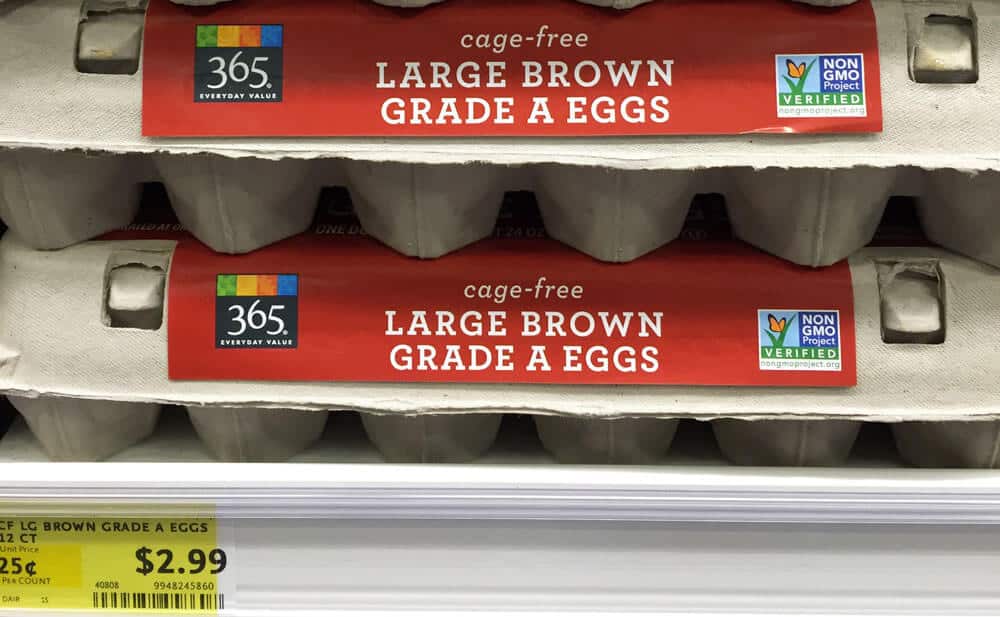
The Color of Eggs
Eggs come in different colors. The most common colors are white and brown. The color of an egg is determined by the breed of the hen that laid it. Brown eggs are laid by breeds with red feathers, while white eggs are laid by breeds with white feathers. However, the color of an egg does not affect its nutritional value or taste.

The Cost of Production
Brown eggs cost more than white eggs because they are produced by hens that are larger and require more food. Brown egg-laying breeds also tend to be less productive than white egg-laying breeds, which means that it takes more hens to produce the same amount of eggs. This increased cost of production is passed on to the consumer in the form of higher prices.

The Demand for Brown Eggs
Brown eggs are perceived by some consumers to be of higher quality than white eggs. This perception is not based on any scientific evidence, but rather on cultural and societal factors. As a result, some consumers are willing to pay more for brown eggs. This increased demand for brown eggs also contributes to their higher price.

The Marketing of Brown Eggs
Some producers of brown eggs market them as being more natural or organic than white eggs. While there is no difference in the nutritional value or taste of brown and white eggs, this marketing strategy appeals to some consumers who are willing to pay more for products that are perceived as being healthier or more environmentally friendly.

The Size of the Eggs
Brown eggs are often larger than white eggs. This is because the breeds that lay brown eggs tend to be larger than the breeds that lay white eggs. Larger eggs require more resources to produce, which increases their cost. However, some consumers prefer larger eggs and are willing to pay more for them.

The Location of Production
The cost of production can vary depending on the location of the farm. Farms that are located in areas with higher costs of living or higher taxes may have higher production costs, which can result in higher prices for their eggs. This is true for both brown and white eggs.

The Seasonality of Production
Egg production can be affected by the season. Hens may lay fewer eggs in the winter months when there is less daylight, which can result in higher prices for eggs. This is true for both brown and white eggs.

The Quality of the Eggs
Brown eggs and white eggs should be of the same quality. However, some consumers believe that brown eggs are of higher quality because they are perceived as being more natural or organic. As a result, some producers of brown eggs may take extra care in the production and handling of their eggs, which can result in higher prices.

The Competition
The price of eggs, both brown and white, is also affected by competition in the market. If there are many producers of eggs in a particular area, prices may be lower due to the competition. However, if there are only a few producers of brown eggs in a particular area, prices may be higher due to the lack of competition.

The Retailer Markup
The cost of eggs is also affected by the markup that retailers place on them. Retailers may charge more for brown eggs simply because they can. However, this markup is not necessarily due to the cost of production or demand for the product.

The Availability of Brown Eggs
Finally, the availability of brown eggs can also affect their price. If there are only a few producers of brown eggs in a particular area, prices may be higher due to the limited supply. However, if there are many producers of brown eggs in a particular area, prices may be lower due to the increased supply.

Conclusion
In conclusion, there are several factors that contribute to the higher cost of brown eggs compared to white eggs. These include the cost of production, demand for the product, marketing strategies, egg size, location of production, seasonality, quality, competition, retailer markup, and availability. However, the color of an egg does not affect its nutritional value or taste. Consumers should choose eggs based on their personal preferences and budget, rather than the color of the egg.